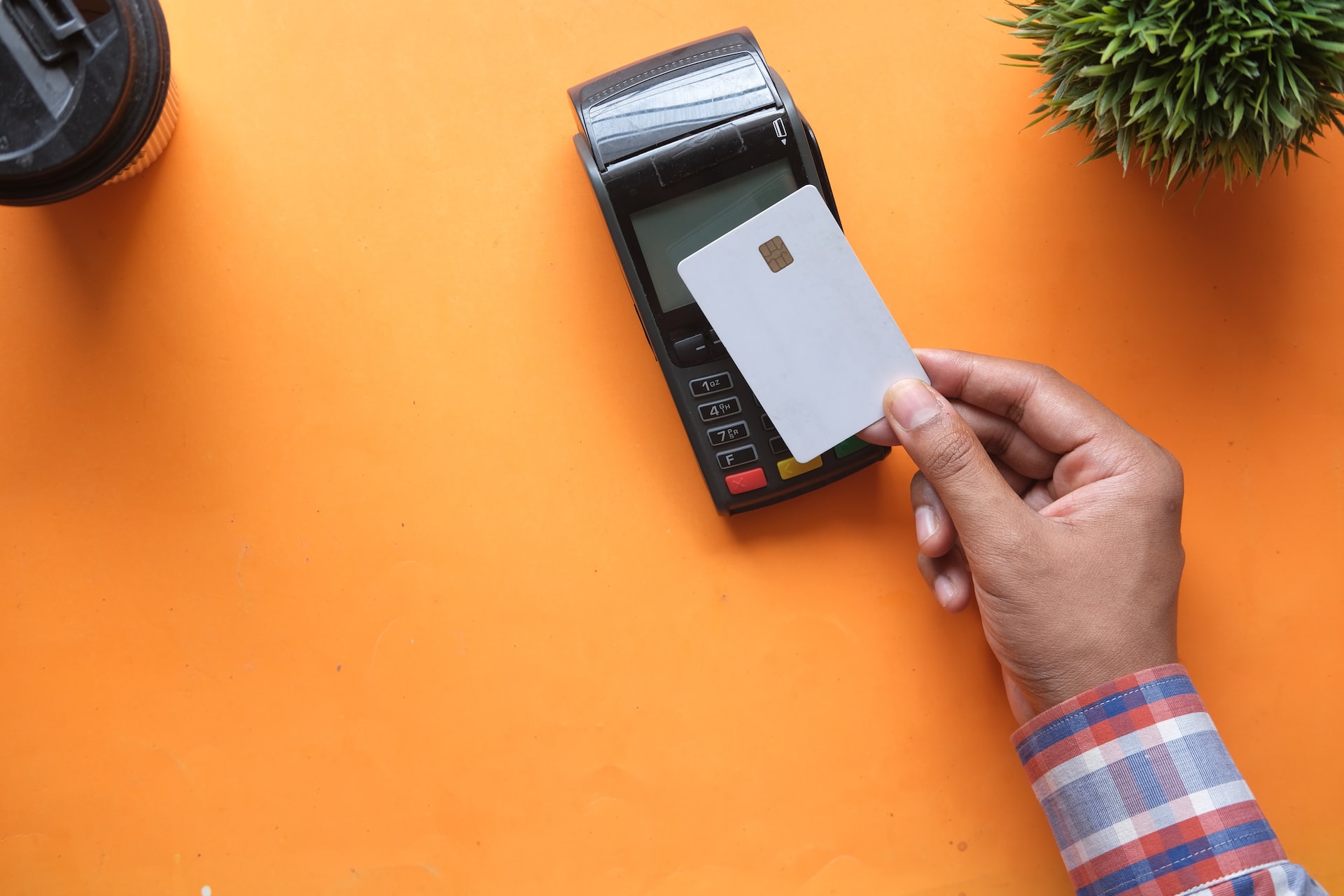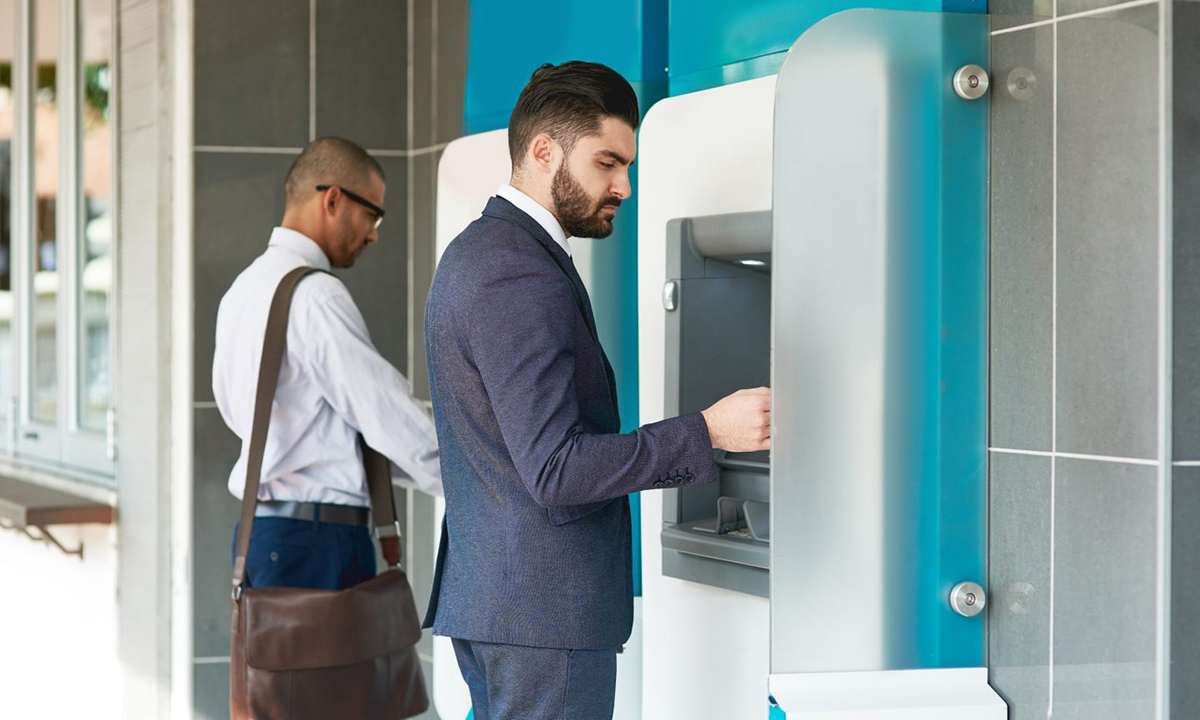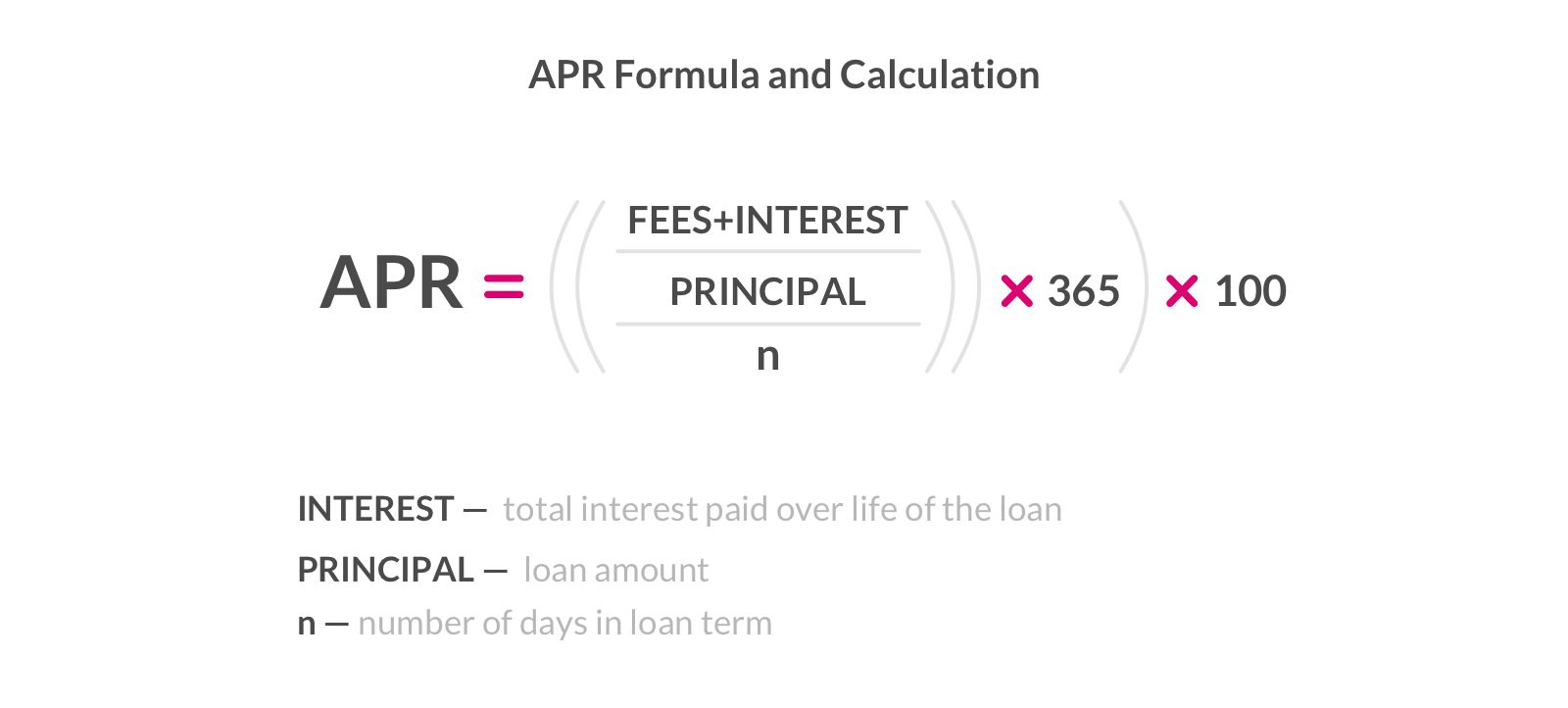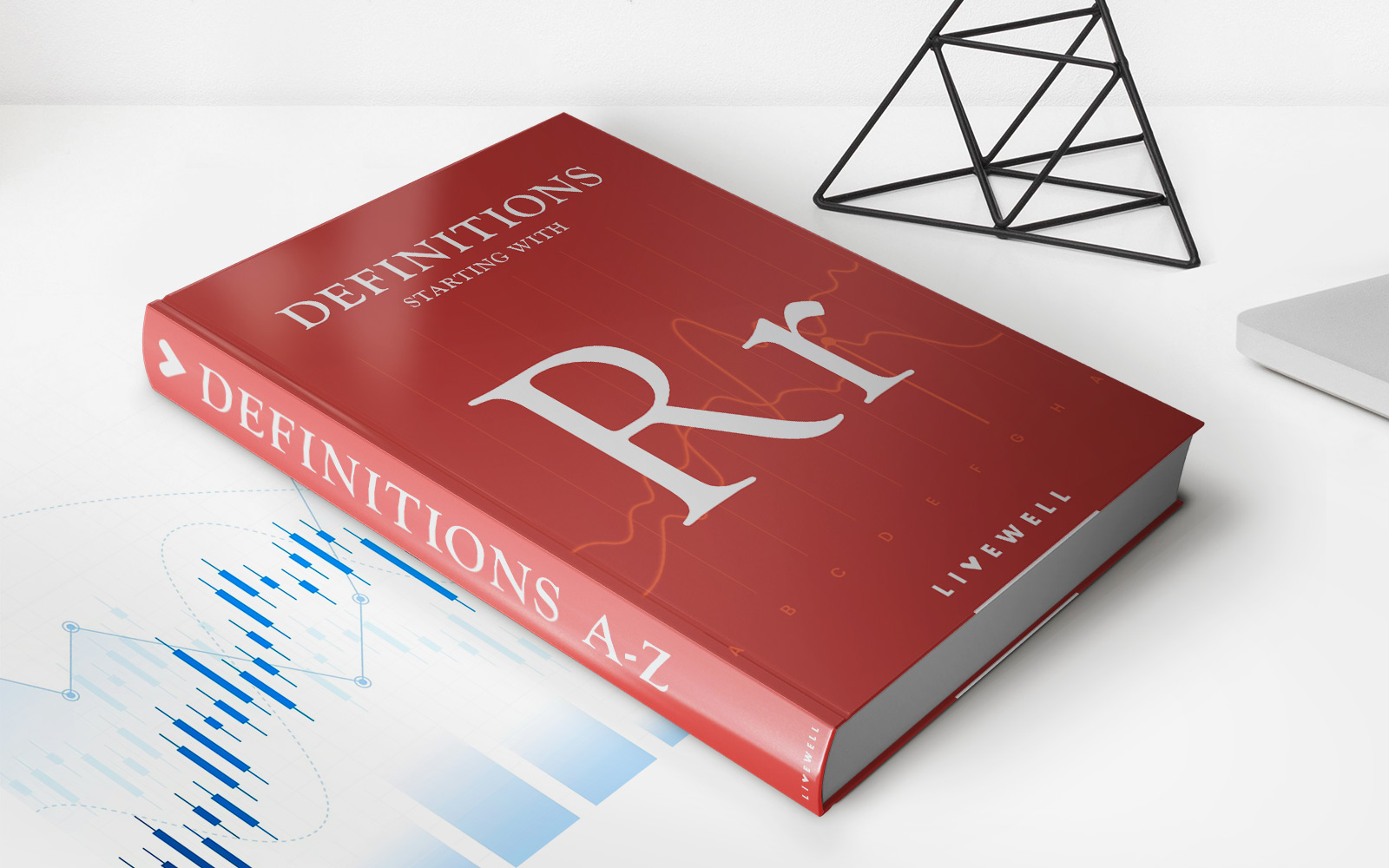

Finance
What Happens When You Overpay Your Credit Card
Modified: February 21, 2024
Learn the consequences of overpaying your credit card and how it can impact your finances. Discover the potential pitfalls and ways to manage your payments effectively.
(Many of the links in this article redirect to a specific reviewed product. Your purchase of these products through affiliate links helps to generate commission for LiveWell, at no extra cost. Learn more)
Table of Contents
Introduction
Managing your credit card properly is an essential part of maintaining a healthy financial life. However, there are instances where you may accidentally overpay your credit card. While it may seem like a minor mistake, it can have consequences that impact your finances and credit score. In this article, we will explore what happens when you overpay your credit card and provide insights on how to avoid this situation.
Credit card overpayment occurs when you pay more than the outstanding balance on your credit card. This can happen due to various reasons, such as miscalculations, misunderstandings of billing cycles, or even a simple error. While it may seem like a good thing to have a credit balance, there are implications that you need to be aware of.
Understanding the consequences of overpaying your credit card is crucial because it can affect your personal finances and creditworthiness. This article will shed light on the temporary credit balance, the process of requesting a refund or transferring funds, and the impact on your credit score. By being aware of these implications, you can avoid making the same mistake in the future and maintain a healthy credit card management routine.
Let’s dive in and explore what happens when you overpay your credit card and how you can navigate this situation effectively.
What is credit card overpayment?
Credit card overpayment refers to a situation in which you pay more than the outstanding balance on your credit card. It can occur when you mistakenly make a payment for an amount that exceeds what you owe to the credit card issuer. This can happen due to various reasons, including miscalculations, confusion over billing cycles, or even a simple error when making the payment.
When you overpay your credit card, the excess amount creates a credit balance on your account. This means that you have prepaid your future expenses and have essentially given the credit card company an interest-free loan. While it may seem like a favorable situation to have a credit balance, it is important to understand the implications of overpaying your credit card.
One key point to note is that credit card overpayment does not cancel out your future payments or obligations. Instead, it puts the excess amount in a temporary credit balance that can be used to offset future purchases or finance charges. However, it is crucial to be aware of the time limitations and terms set by the credit card issuer to utilize this credit balance effectively.
It is also important to understand that credit card overpayment is different from making extra payments towards your outstanding balance. Making additional payments to reduce your debt is a positive financial strategy, as it helps you pay off your credit card faster and save on interest charges. Credit card overpayment, on the other hand, is an unintentional mistake that can lead to potential complications if not addressed correctly.
In the following sections, we’ll explore the potential consequences of overpaying your credit card and the steps you can take to rectify the situation. It’s crucial to understand the implications of credit card overpayment to minimize any negative impact on your financial well-being.
How to overpay your credit card
While credit card overpayment is typically unintentional, it’s important to understand how it can happen to avoid making this mistake in the future. Here are some common scenarios that can lead to overpaying your credit card:
- Miscalculations: It’s possible to make a mathematical error when calculating the amount to pay on your credit card. This can happen if you manually calculate the outstanding balance and accidentally pay more than what is owed.
- Confusion over billing cycles: Credit card statements usually cover a specific billing cycle, often a month. If you’re not familiar with your credit card’s billing cycle or if your payment due date falls near the end of the cycle, you might accidentally overpay if you submit a payment after the statement is generated.
- Automated payments: Setting up automated payments can be convenient, but it can also lead to overpayment if you fail to adjust the payment amount when there are changes in your outstanding balance or if you forget to cancel automated payments after paying off your credit card.
- Payment errors: A simple typo or clicking the wrong button during the payment process can result in an overpayment if you submit the wrong amount.
To avoid overpaying your credit card, it’s crucial to double-check your outstanding balance, review your credit card’s billing cycle, and maintain awareness of any changes in your payment schedule. Additionally, being mindful and focused when making manual payments or adjusting automated payments can help prevent unintended overpayments.
While overpaying your credit card may not always be avoidable, being proactive in monitoring your credit card activity and staying vigilant during the payment process can significantly reduce the chances of making this mistake.
Next, we’ll discuss the potential consequences of overpaying your credit card and how to handle the situation effectively.
Consequences of overpaying your credit card
While overpaying your credit card may seem like a harmless mistake, it can have several consequences that you should be aware of. Understanding these consequences will help you take the necessary steps to rectify the situation and mitigate any potential negative impact on your finances. Here are some of the potential consequences of overpaying your credit card:
- Temporary credit balance: When you overpay your credit card, the excess amount creates a temporary credit balance on your account. This credit balance can be used to offset future purchases or finance charges. It’s important to note that this credit balance has an expiration date determined by the credit card issuer, and if it is not utilized within that timeframe, you may lose access to the funds.
- Inconvenience: Overpaying your credit card can lead to administrative inconveniences. For example, if you have a credit balance and you continue to make new purchases, the excess amount may be automatically applied towards those purchases, which can create confusion when trying to track your expenses and outstanding balance.
- Delayed refunds: If you overpay your credit card and want to request a refund of the excess amount, you may experience a delay in receiving the refund. This can be frustrating, especially if you need the funds immediately. It’s essential to reach out to your credit card issuer and follow their refund process to expedite the return of the overpaid amount.
- Impact on credit utilization ratio: Your credit utilization ratio is the percentage of your available credit that you are utilizing. Overpaying your credit card and maintaining a credit balance can temporarily lower your credit utilization ratio, which may have an adverse effect on your credit score. Creditors typically prefer to see a credit utilization ratio below 30%, so having a credit balance may not necessarily work in your favor.
- Limited access to funds: If you overpay your credit card and expect to use the credit balance for future expenses, you may encounter limitations on accessing those funds. This can be due to expiration dates or restrictions imposed by the credit card issuer.
Understanding these consequences will help you navigate the situation effectively. In the next sections, we’ll discuss how to handle a credit card overpayment, including requesting a refund or transferring the funds to another account.
Temporary credit balance
When you overpay your credit card, the excess amount creates a temporary credit balance on your account. This credit balance represents the amount that you have prepaid and essentially gives you a surplus of funds that can be used to offset future purchases or finance charges.
It’s important to note that a credit balance on your credit card account is not a cancellation of your future payment obligations. Instead, it serves as a prepayment for future expenses. This means that any purchases you make will first be deducted from the credit balance before your credit card company charges your account.
However, it’s crucial to understand that the credit balance on your credit card has an expiration date determined by the credit card issuer. If you do not utilize the funds within the specified period, you may lose access to the credit balance and the excess amount you initially overpaid.
Most credit card issuers have specific guidelines on how long you can maintain a credit balance before it expires. This can range from a few months to a year, depending on the terms and conditions of your credit card agreement. It’s important to check with your credit card issuer to determine the expiration date of your credit balance and ensure that you utilize the funds within that timeframe.
While having a credit balance may initially seem advantageous, it’s essential to be mindful of the expiration date and plan your future spending accordingly. Failure to utilize the credit balance within the specified period may result in the loss of the funds, ultimately reducing your benefit from the overpayment.
In the next sections, we’ll explore the steps you can take to effectively handle a credit card overpayment and ensure that you maximize the use of the credit balance.
Requesting a refund or transferring funds
If you have overpaid your credit card and want to access the excess funds, you have a couple of options: requesting a refund or transferring the credit balance to another account.
Requesting a refund: The first step is to contact your credit card issuer and inform them of the overpayment. They will guide you through the process of requesting a refund. Depending on the credit card issuer’s policies, you may be required to fill out a form or provide supporting documentation to initiate the refund process. It’s essential to follow their instructions carefully to ensure a smooth and timely refund.
Transferring funds: If you prefer to keep the credit balance within your credit card ecosystem, some credit card issuers allow you to transfer the excess funds to another account, such as a savings account or another credit card account. This way, you can retain the funds and use them for future expenses or repayments. Check with your credit card issuer to see if this option is available and learn about the process involved.
When initiating a refund or transferring funds, it’s important to be aware that it may take some time for the credit card issuer to process your request. Depending on their procedures, you may experience a delay in receiving the funds. Stay in regular communication with your credit card issuer to ensure that your request is being processed and to address any potential concerns or questions regarding the refund or transfer.
By taking the necessary steps to request a refund or transfer the funds, you can effectively utilize the excess amount and minimize any potential inconveniences or complications resulting from the credit card overpayment.
Next, we’ll discuss the impact of credit card overpayment on your credit score and how to mitigate any negative effects.
Impact on credit score
Overpaying your credit card and maintaining a credit balance can have an impact on your credit score, although the magnitude of the impact is typically minimal. Here’s how credit card overpayment can affect your credit score:
Credit utilization ratio: Your credit utilization ratio is a key factor in determining your credit score. It is the percentage of your available credit that you are utilizing. When you overpay your credit card and have a credit balance, it temporarily lowers your credit utilization ratio. This can have a positive effect on your credit score, as creditors generally prefer to see a lower credit utilization ratio. However, it’s important to note that this impact is temporary and may not significantly influence your credit score in the long term.
Payment history: Your payment history, which includes whether you make payments on time, is a crucial factor in determining your credit score. Overpaying your credit card does not harm your payment history, as long as you continue to make at least the minimum payment required by the due date. However, it’s essential to remain vigilant and monitor your credit card activity to ensure that you make timely payments in the future.
Credit mix and length of credit history: Overpaying your credit card does not directly impact your credit mix or the length of your credit history, which are also factors considered when calculating your credit score. These aspects are based on the types of credit accounts you have and the length of time you have had credit. Therefore, credit card overpayment is unlikely to have a significant effect on these areas of your credit score.
While overpaying your credit card may have some temporary impact on your credit score, it’s important to remember that credit card overpayment is not a financial behavior that creditors typically view negatively. Keep in mind that maintaining a good credit score involves various factors, such as making timely payments, keeping credit card balances low, managing different types of credit, and demonstrating responsible financial habits overall.
If you have overpaid your credit card and are concerned about the impact on your credit score, the best course of action is to continue practicing responsible credit management and ensuring that you make timely payments on all your credit accounts.
In the final section, we’ll discuss strategies to avoid credit card overpayment and maintain a healthy credit card management routine.
Avoiding credit card overpayment
To prevent credit card overpayment and ensure a smooth credit card management routine, consider implementing the following strategies:
- Review your statement: Take the time to carefully review your credit card statement each month. Check the outstanding balance, payment due date, and any upcoming transactions. By staying informed about your credit card activity, you can avoid confusion or miscalculations that may lead to overpayment.
- Set payment reminders: Utilize the payment reminder services provided by your credit card issuer or set up personal reminders to ensure that you make timely payments. This will help you stay on top of your credit card payments and avoid the risk of overpaying.
- Automate payments with caution: While setting up automated payments can be convenient, it’s important to regularly review and update the payment amounts. If your outstanding balance fluctuates, make sure to adjust the automated payment to avoid overpaying.
- Track your expenses: Keep track of your credit card expenses and monitor your spending patterns. This will help you maintain a clear understanding of your outstanding balance and minimize the risk of making incorrect or excessive payments.
- Communicate with your credit card issuer: If you have any doubts or questions about your credit card balance or payment amount, do not hesitate to reach out to your credit card issuer. They can provide clarification, assist you in understanding your statement, or guide you in avoiding overpayment.
- Utilize online account management: Take advantage of the online account management tools provided by your credit card issuer. These tools often include features such as real-time balance updates and transaction tracking, enabling you to stay updated and manage your credit card effectively.
By implementing these strategies, you can significantly reduce the chances of overpaying your credit card. Maintaining open communication with your credit card issuer and staying proactive in managing your credit card account will help you maintain financial stability and make the most of your credit card benefits.
Let’s wrap things up in the next section.
Conclusion
Managing your credit card effectively is crucial for maintaining a healthy financial life. While credit card overpayment may happen unintentionally, it’s important to understand the potential consequences and how to navigate the situation.
Overpaying your credit card creates a temporary credit balance, which can be used to offset future purchases or finance charges. However, it’s essential to be aware of the expiration date set by the credit card issuer to ensure that you maximize the use of the credit balance.
If you have overpaid your credit card, you have the option to request a refund or transfer the excess funds to another account. It’s important to follow the specific process outlined by your credit card issuer to ensure a timely resolution.
Credit card overpayment can have a minimal impact on your credit score, primarily through fluctuations in your credit utilization ratio. However, with responsible credit management, timely payments, and keeping credit card balances low, you can mitigate any potential negative effects on your credit score.
To avoid credit card overpayment, review your statements regularly, set payment reminders, track your expenses, and utilize online account management tools. These proactive measures can help you maintain control of your credit card management and prevent accidental overpayments.
Remember, communication with your credit card issuer is essential. If you have any questions or concerns about your credit card balance or payments, reach out to them for clarification and guidance.
By being aware of the potential pitfalls and implementing effective strategies, you can confidently manage your credit card and maintain a healthy financial footing.
Keep these insights in mind to avoid credit card overpayment and make the most of your credit card benefits. Stay proactive, informed, and responsible, and you’ll be well on your way to achieving financial success.














